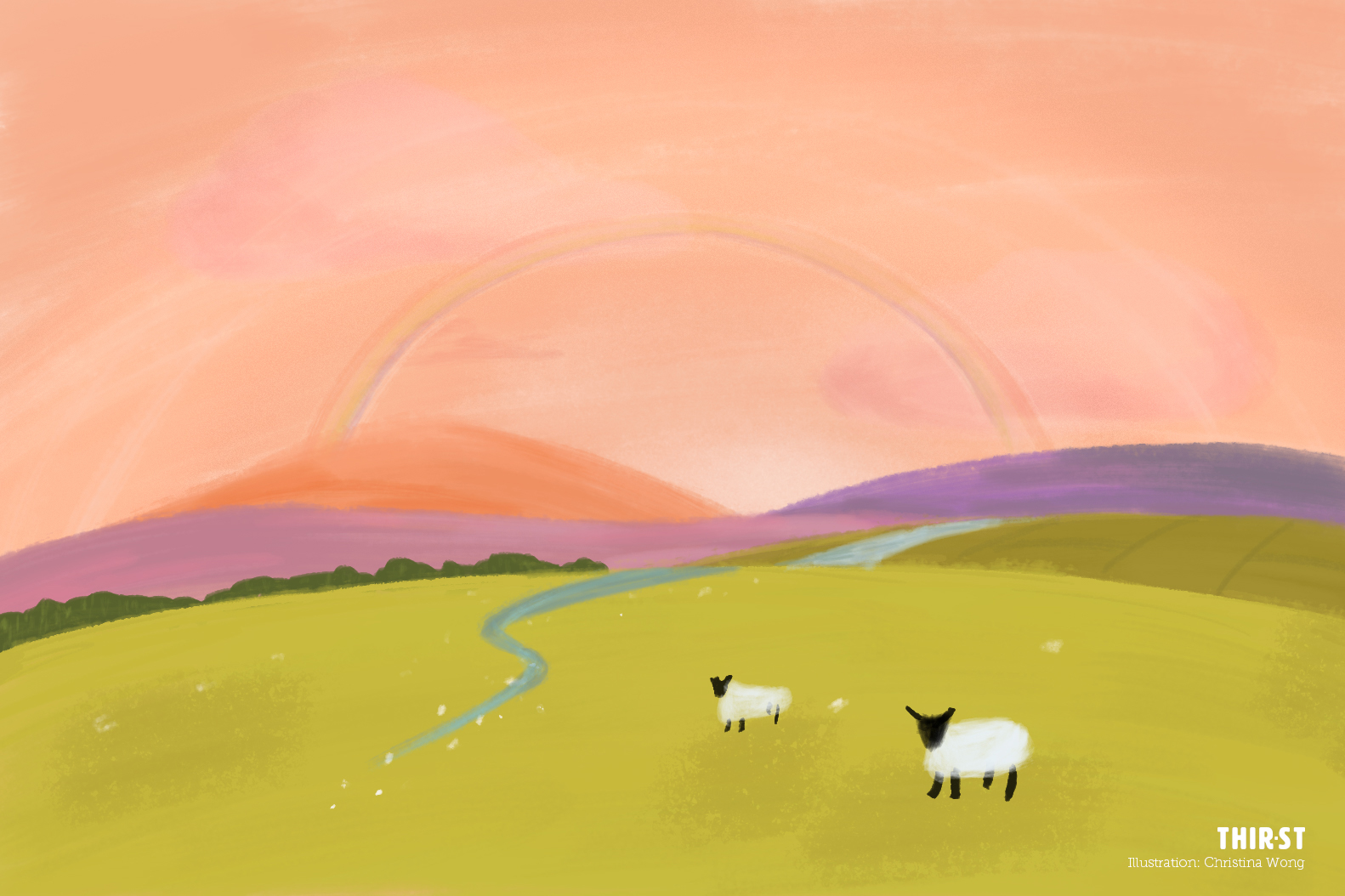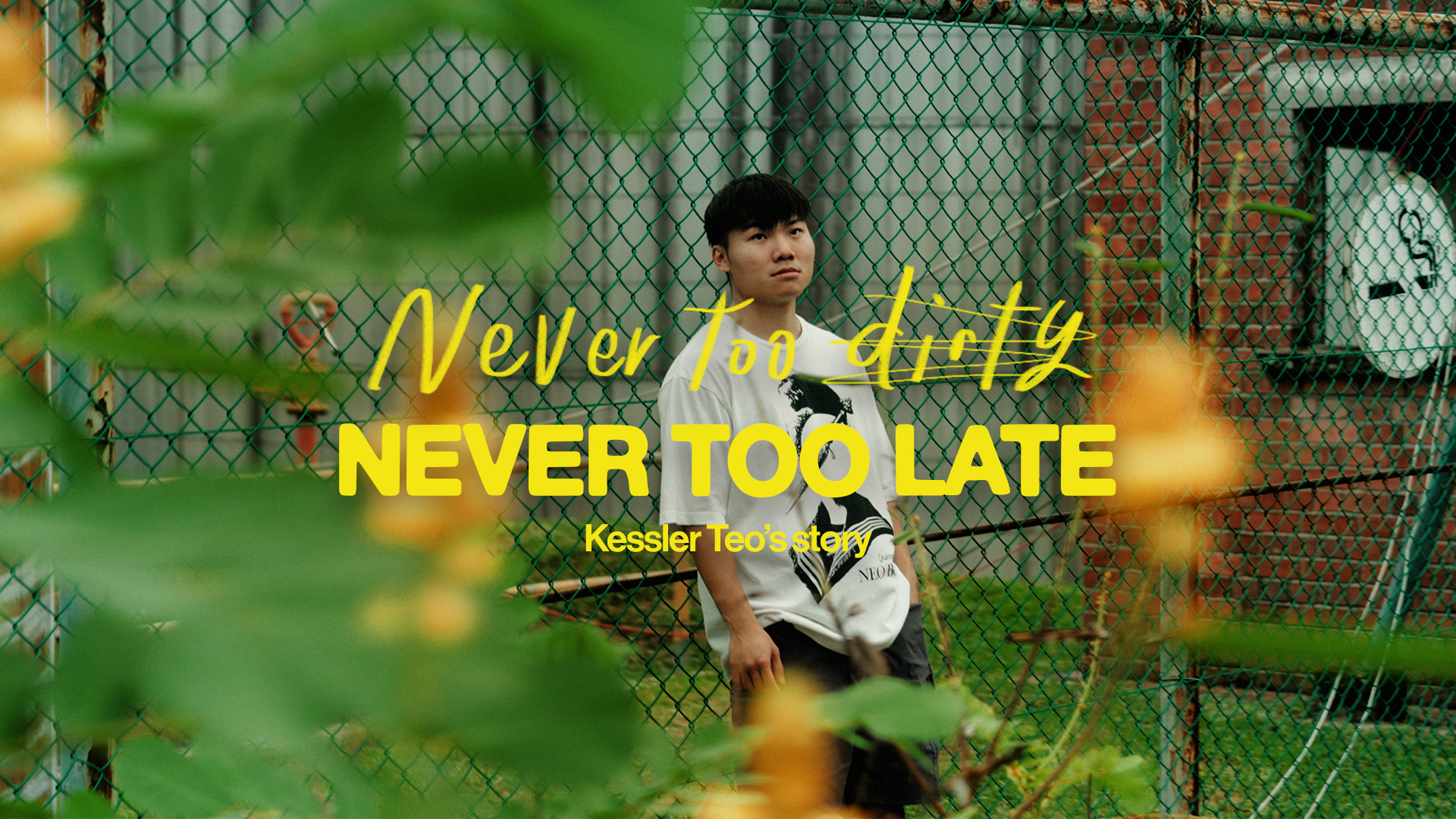I was finishing up my work day when my phone rang. The voice on the other end was distraught.
“Your brother is gone.”
For some reason, these words from my mum didn’t quite register.
I would only remember rushing down to the scene, being escorted by a police officer and asking him in the lift: “Did the ambulance come? Did anyone try to save my brother?”
“He was already dead when we arrived,” I was told.
That was when it finally sank in. He was truly gone. In that instant, my world would be changed forever.

Forever. It seemed like forever before we were finally allowed to see my brother’s body.
As the police conducted their investigations, our family huddled together in a holding area. A few close ones had come to bring comfort… and then surprisingly, my pastor arrived too.
I cannot tell you how grateful we were for her presence. It was after-office hours. She could have sent a text message offering condolences, but here she was, standing with us in our grief, praying for us and linking us up with people that would be helpful in the aftermath.
I don’t remember exactly what she said, but I do recall her describing suicide ideation as “a fever” that can spike and push you over the edge when you feel extremely overwhelmed.
Her words, though simple, were like a balm to my soul. I don’t think I ever fully understood that my brother was sick – even when I had visited him in the psychiatric ward during one of his hospitalisation stays.
My brother died from mental illness.
Though he was a Christian, in that moment of despair, he wasn’t able to see through the lie that death was the only way to escape his pain. He wasn’t able to rationalise that his action would bring so much agony to our family. In fact, he probably thought he was doing us a favour, relieving us of the burden of caring for him.
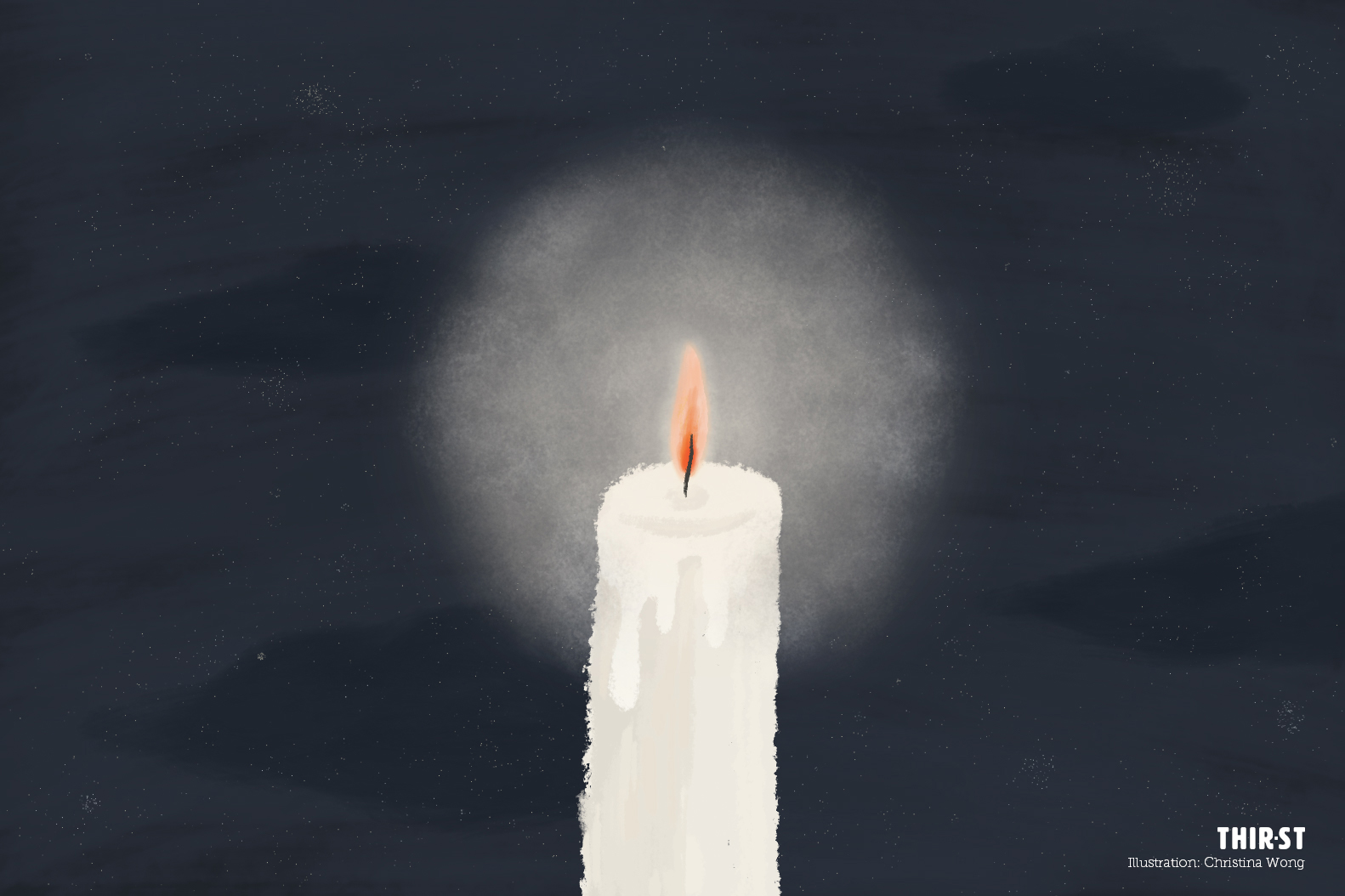
When the police found my brother’s laptop, they told us that he had been trying to complete his assignment. There was no suicide note.
I had seen my brother the night before – I had no inkling that he was suicidal.
Yes, he seemed more frazzled than usual. He told me he was late in submitting his essay. I tried to help him with his writer’s block, even proceeding to type out a possible introduction paragraph for him. But he still had trouble focusing, so when he said he needed to go for a walk for some fresh air, I didn’t stop him.
That would be the last time I saw him alive. The very next evening, he would take his life.
Unlike someone suffering from a terminal illness, there were no final goodbyes to speak of. Death came swiftly. And it dashed all the dreams my brother had. One call changed my life.
How could it not when the person I knew for 26 years had suddenly vanished overnight?
When we finally got to see my brother, I remember kneeling beside his lifeless body weeping and saying: “I’m so sorry. Zei zei (姐姐) couldn’t protect you.”
It’s strange how one’s mind processes an incident like that. Of all the things I could have said, those were my first thoughts. And these would not be the last time they would replay in my head.
It was this sense of failed responsibility and duty that would gnaw at me.
I didn’t manage to protect my brother. I shouldn’t have encouraged him to pursue this course of study. How could I have missed the signs?
His death left a void – a void of answers, an absence that I would have to live with for the rest of my life.
My heart shatters every time my mind flashes back to that night – when I cried my heart out. It was a grief that I had never known. A kind of sadness that engulfs. A pain that comes with the permanence of death.
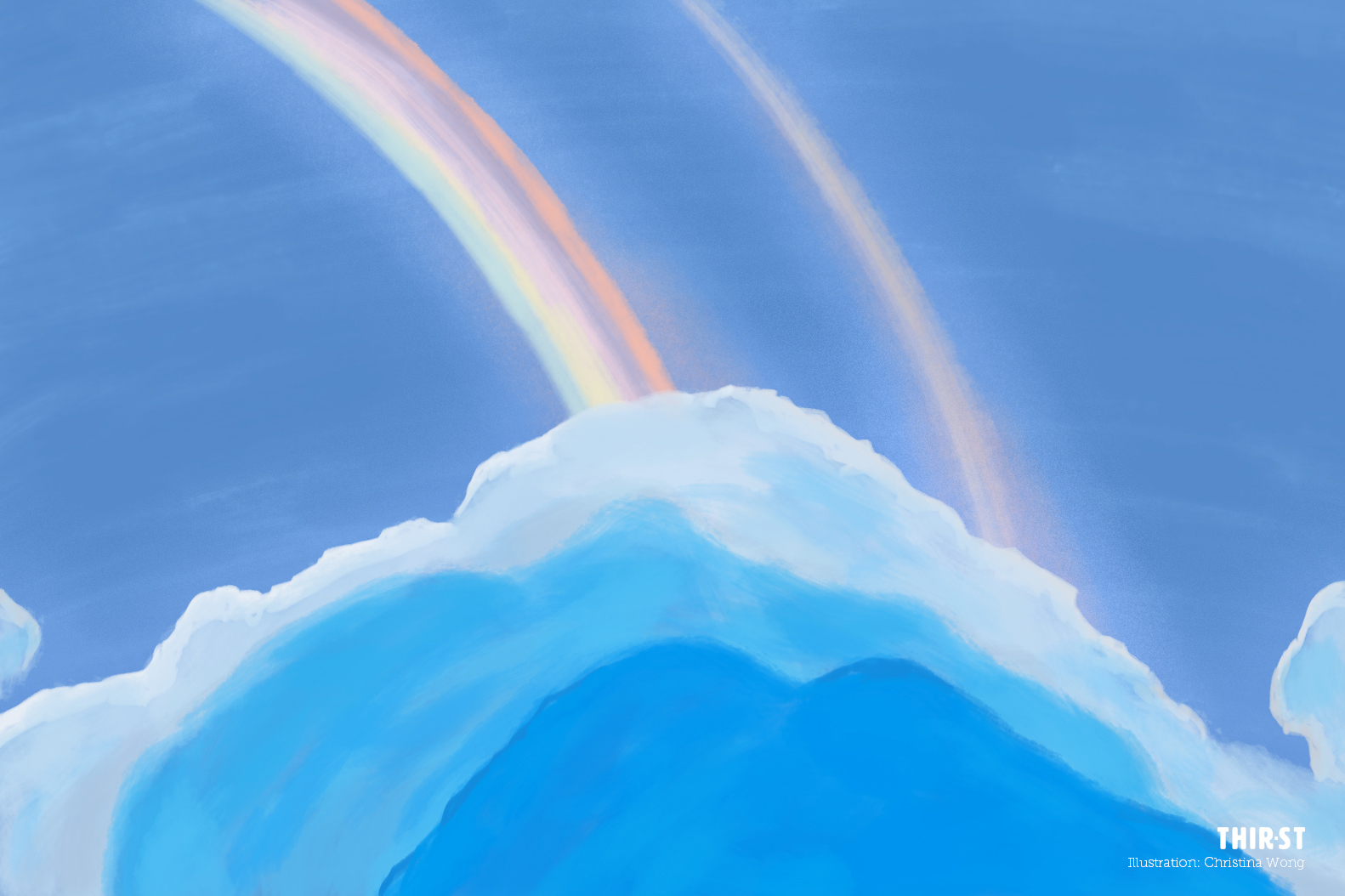
I remember arriving at Mount Vernon on the first day of the wake, our hearts heavy with grief. We looked up to the sky and there it was as the sun was setting: A double rainbow. This rare sight was also seen across Singapore – different ones had captured it and sent us their photos.
Despite all that happened, the rainbow reminded us of God’s grace and mercy over our lives. His presence and His peace brought so much comfort. We had hope in the future, knowing that we’d be able to weather this storm because He was with us.
There was much sadness throughout the wake – but also much joy knowing that because my brother had accepted God’s gift of salvation for the forgiveness of sin, he was in a better place and we would one day see him again.
We laughed at the funny stories told by my brother’s friends as the eulogies were shared. We celebrated his life and remembered the legacy he left behind. We bought his favourite mango cake and each had a slice in memory of him.
“The Lord is close to the brokenhearted and saves those who are crushed in spirit.” (Psalm 34:18)
In the sorrow of death, I could still celebrate the joy of life.
Shortly after the funeral, God dropped a name into my mind for the baby I was pregnant with. I had to Google its meaning because it wasn’t a name that I had on my shortlist.
I continued to ponder over this message silently, until one day someone who was praying for me had a vision of a rainbow and also said: “I see a letter ‘Z’ over this baby, what does it mean?”
That was a confirmation of the name that God had given me.
Zóé is the Greek word for “life” – not just life on this earth as we know it, but the eternal life that Jesus came to give.
God, in His love, was reminding me of His faithfulness. In the sorrow of death, I could still celebrate the joy of life.
“The thief comes only to steal and kill and destroy; I have come that they may have life (zóé), and have it to the full.” (John 10:10)
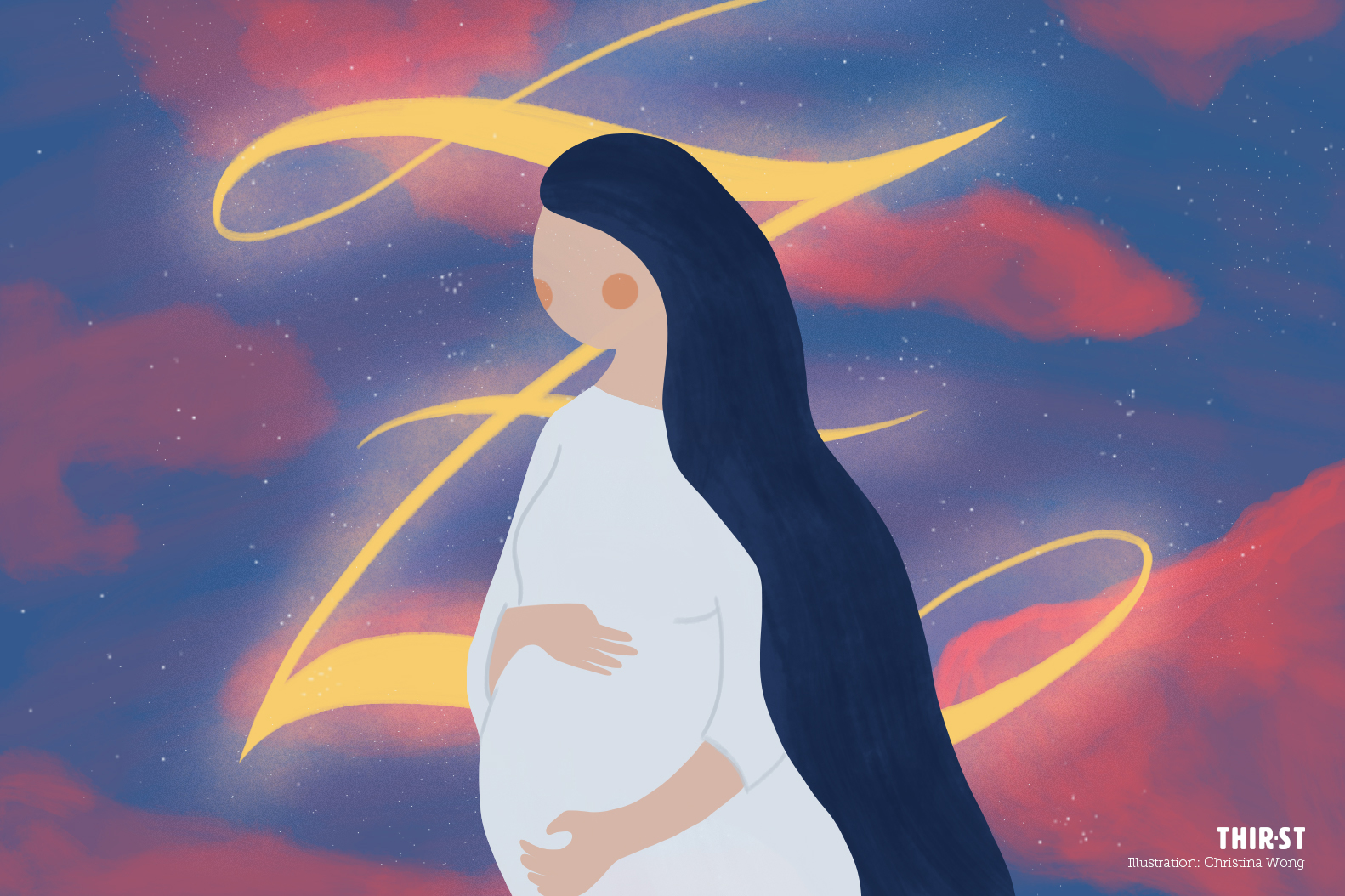
Three months later, I gave birth to an adorable girl whom my husband and I named Zoey.
A wise person once told me: “Time alone doesn’t heal. It’s what you do during that time that determines whether you get healed.”
It’s been three years. In the wake of this life-changing encounter, there has been so much to wrestle with. Grief, anger, guilt, shame, doubt, fear… There’s an odd term for people like me: “suicide survivor”.
I’ve stopped seeing myself as a victim of circumstances and started seeing how God is using me in His kingdom to bring hope.
My heart aches every time I see a young man on the street who looks like my brother. Or when I chance upon old photos or listen to songs that remind me of him. It always hurts a little more around this time of the year when his death anniversary rolls around or during special occasions when we miss him dearly.
But I’ve been blessed to be able to process my emotions with different leaders and be equipped on the issues of mental health and suicide. We live in a world that’s imperfect and marred by sin, so sickness is something that we can’t run away from.
I’ve also experienced forgiveness and freedom from many of the ungodly beliefs and unhelpful thought patterns I once had. I’ve stopped seeing myself as a victim of circumstances and started seeing how God is using me in His kingdom to bring hope.
After the tragedy, God placed in my heart a desire to minister to young people. I’m amazed at how this would lead me to Thir.st.
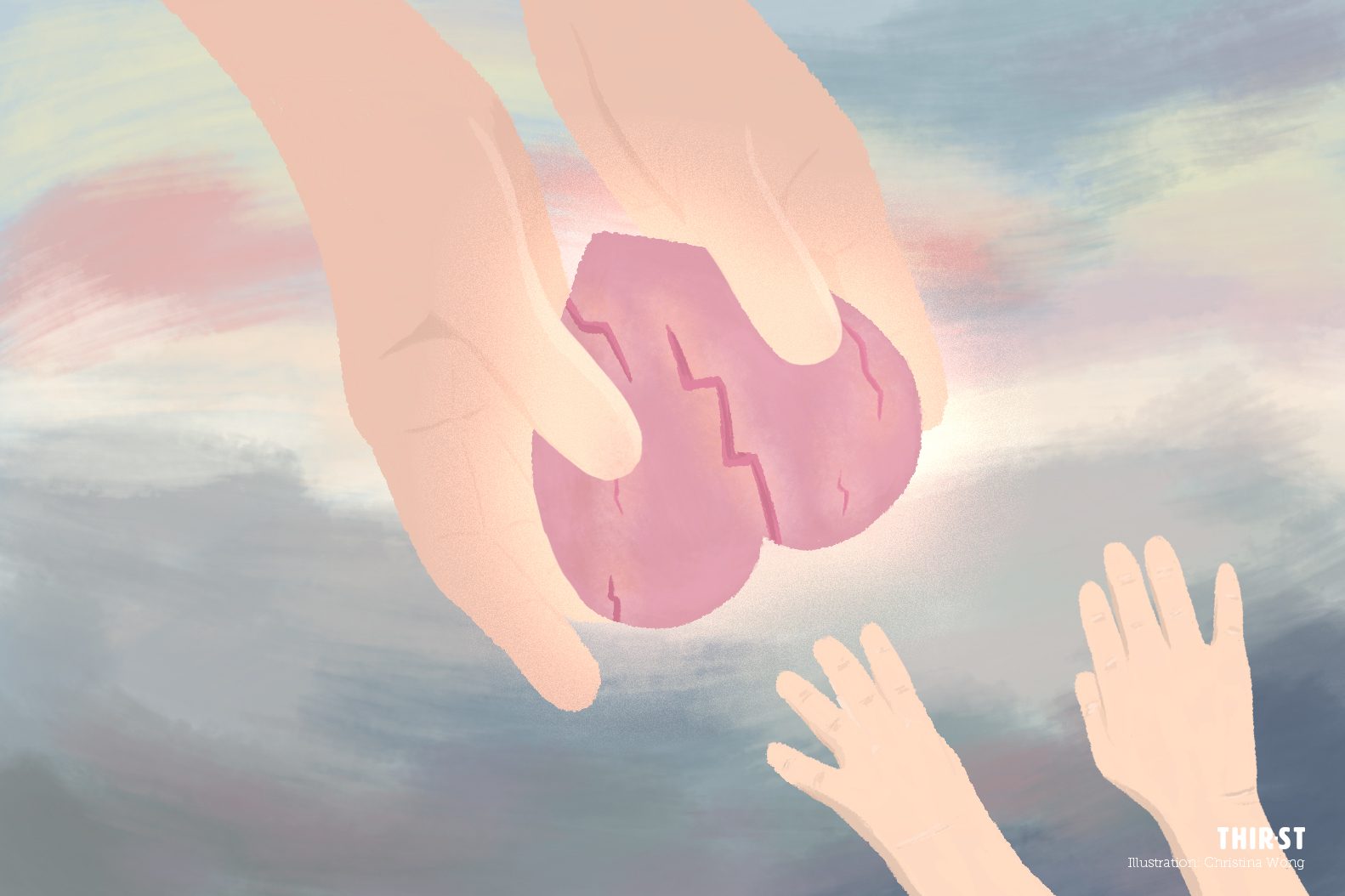
Earlier this year, I received a picture while I was being prayed for during a healing session.
It looked like a vision of heaven: God was seated on the throne, and beside Him were Jesus and my brother. I was given a heart that was covered with cracks, but it was glowing brightly. The light within was shining through the break lines.
That day, I realised that while I would always carry the painful memory of what had happened, God was also restoring me – one broken piece at a time.
My faith is not defined by my wounds but my scars, just as Jesus was not defined by his broken body on the Cross but His resurrected, scarred body. His death is not the focal point of Christianity – His coming back to life is.
Up from the ashes, hope will arise.
Death is defeated, the King is alive!
– Raise a Hallelujah
For anyone who is grappling with loss or has had to endure a traumatic experience, take heart because with Christ, there’s always hope. And not just hope, but joy.
In the midst of pain, He is present. He can redeem a seemingly dire situation. He can turn your ashes into beauty. He can transform your fear to faith. He is good.
One of the hardest things as a bereaved family is when you seem to be the only ones who remember your loved one.
When no one wants to talk about the elephant in the room because they’re worried that this might trigger you.
When it feels like you have to bury your grief because people expect you to have moved on.
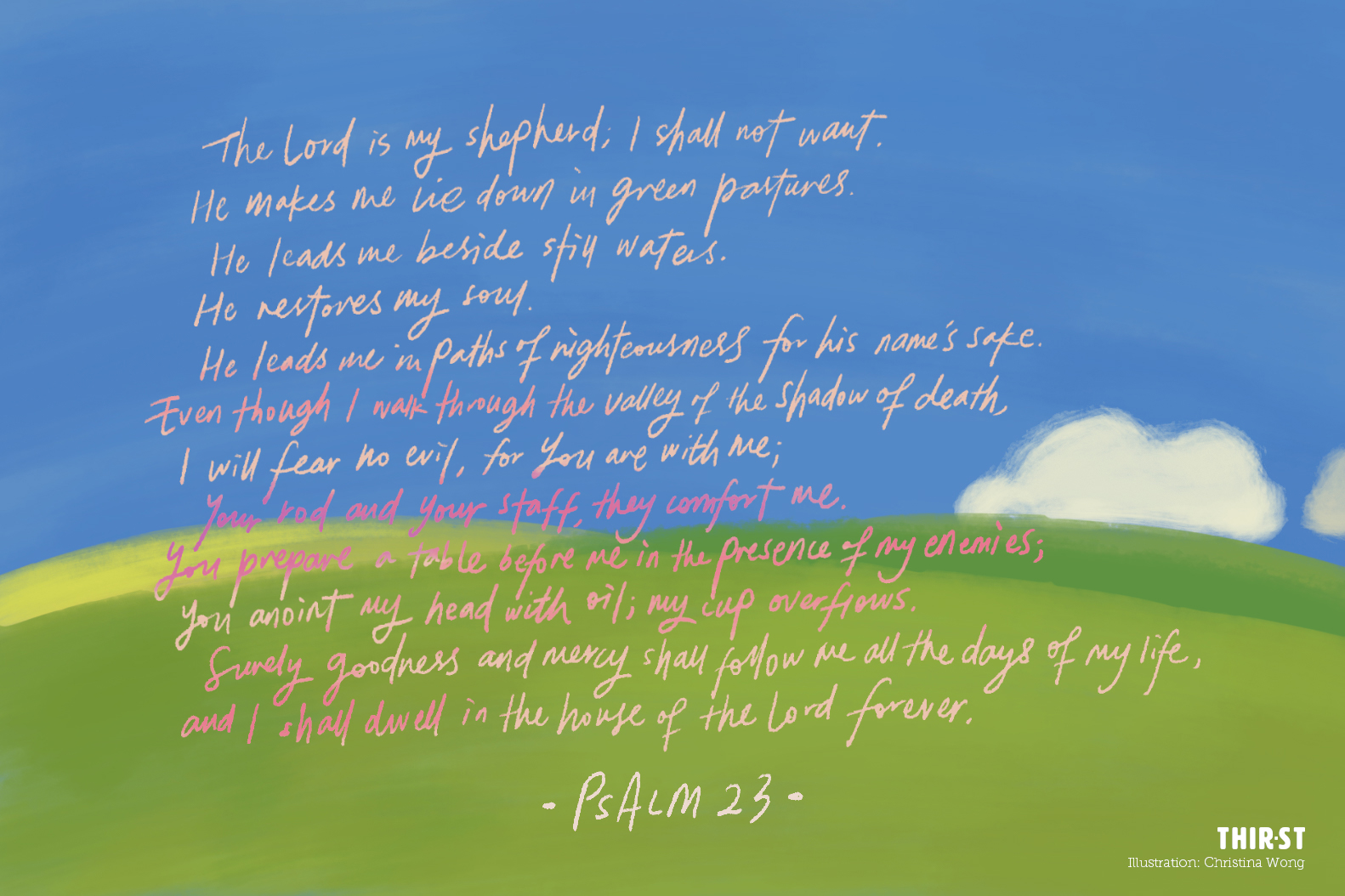
To our friends and family, thank you for loving us in practical ways, your words of encouragement and just being there for us.
To all pastors and full-time workers on the frontlines of ministry, thank you for sacrificing your personal time to bring comfort in times of need.
To my brother’s friends, thank you for keeping my brother’s memory alive with the messages you leave on his social media page and honouring his life through the various initiatives you have started in his name.
I hope that in the coming years we can all have deeper and more meaningful conversations on mental health, suicide and death.
Ask, and be slow to speak but quick to listen. Let’s journey together with those who are struggling as well as those who have lost someone through mental illness.
If you’re feeling down and would like to chat with someone, help is available here:
Samaritans of Singapore (SOS) 24-hour Hotline: 1800 221 4444 or [email protected].
Institute of Mental Health’s 24-hour Hotline: 6389 2222
Care Corner Counselling Centre (Mandarin): 1800 353 5800
Singapore Association for Mental Health: 1800 283 7019
And if you want to know more about Jesus and the hope He can give, I’d love to connect with you.
- Have you experienced any grief over losing someone or something that meant so much to you? How did you process it?
- What does hope look like in your current circumstance? What can you give thanks for?
- Do you know someone who is struggling with mental health? How can you bring hope to him/her?


